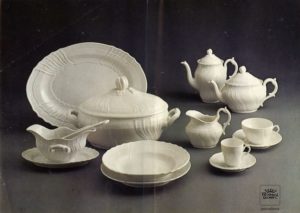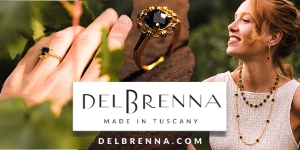 We all have some precious porcelain lying in our cupboards, whether it’s a set of plates, mugs, or teapots that we only use on special occasions. Christmas Day, Thanksgiving and Easter entice these items out of hiding, but what about the rest of the year? The incessant need to keep them in perfect condition; mothers and grandmother’s ears prick up just at the sound of a crack.
We all have some precious porcelain lying in our cupboards, whether it’s a set of plates, mugs, or teapots that we only use on special occasions. Christmas Day, Thanksgiving and Easter entice these items out of hiding, but what about the rest of the year? The incessant need to keep them in perfect condition; mothers and grandmother’s ears prick up just at the sound of a crack.
This year, families may be able to treat themselves to high quality bone china for an affordable price that they could certainly use during special occasions and even daily. The well-known and loved ‘Richard Ginori’ brand will be opening a Christmas market in Sesto Fiorentino that Italians and tourists will sure find difficult to resist!
The Christmas sale is coming Friday, Dec 1 until Sunday 3 and will be open to the public from 10 am through 7 pm (via Giulio Cesare, 50, Sesto Fiorentino).
The Richard Ginori brand has been around Tuscany since the 1700s, and while its world-famous quality has remained un-altered, company management and even its name has changed over the years, (see brief history details below).
A FINE CHRISTMAS MARKET
For those searching for an alternative gift this year, may find the ideal present idea at the Richard Ginori fair.
Purchase quality products, produced by the manufacturer, yet for a much more affordable price than those found in stores.
As well as a chance to get your hands on the sought-after items, it also makes for a great family day trip, with workshops on offer for children.
“Christmas on a Plate” and “Getting Creative with Your Hands” are two informative and fun laboratories for kids taking place on Saturday 2. Recommended for ages 6 – 13, the first “Christmas on a Plate” will allow them to get creative by making a Christmas-themed plate. After creating their designs, craftsmen will transfer these onto a blank dish. Participants will then be able to pick up their completed creations on Dec. 9 at La Botteguccia (viale Giulio Cesare, 21). The workshop will begin at any of the following times, 10 am, 11 am, 2:30 pm and 3:45 pm.
The second, “Getting Creative with Your Hands” will give children of the same age, the opportunity to create and shape their own porcelain (unglazed) item that they can decorate and then use as décor or perhaps even give as a gift, from 10 am until 11:30 am on the same day.
For these events, booking is required and can be done anytime before Nov. 30, by either e-mailing info@spaziocostanza.it or phoning 00552741095 (free admission, however there are limited spaces).
THE HISTORY OF PORCELAIN IN TUSCANY
So how did this fine-quality “white gold,” as it was once referred to, come to be?
The earliest discoverer of porcelain in Italy dates back to the 1200s with Marco Polo who brought home souvenirs from his travels around China. Soon these items, being widely appreciated, were collected by the royal courts of Europe.
It was, however, in the 1700s in Italy, when the porcelain ‘boom’ really took off, when the pasta tenera, or soft porcelain mixture, was discovered by Francesco I de’ Medici. At the same time, Carlo Ginori, (from which comes the brand ‘Richard Ginori’), scientist and son of nobility, was conducting his own extensive research in order to find the perfect mixture.
Having great success and seemingly having found the perfect technique, Ginori went on to open his own porcelain factory in Doccia, an area of Sesto Fiorentino. By 1750, he was making items such as flowered teapots with dragonhead spouts and 14K gold-bordered white tableware.
Eventually the brand, known today as ‘Richard Ginori’ came to be as such after Richard, a French/Swiss manufacturer took over Carlo Ginori’s firm. Carlo’s earliest pieces are now exhibited in the Doccia Museum (Viale Pratese, 31), the exhibition that showcases the local history of porcelain manufacture. His porcelain designs were greatly influenced by the contemporary Late Baroque or Roccoco style of the time (1700s) while the later collections, under Richard’s management, were ostensibly influenced by the Art Noveau and Art Deco movements (late 1800s, early 1900s).
Experience the world of porcelain at the Richard Ginori Market where one can take home a delicate Ginori item or a personalised gift created at either of the workshops. (karen gee)








